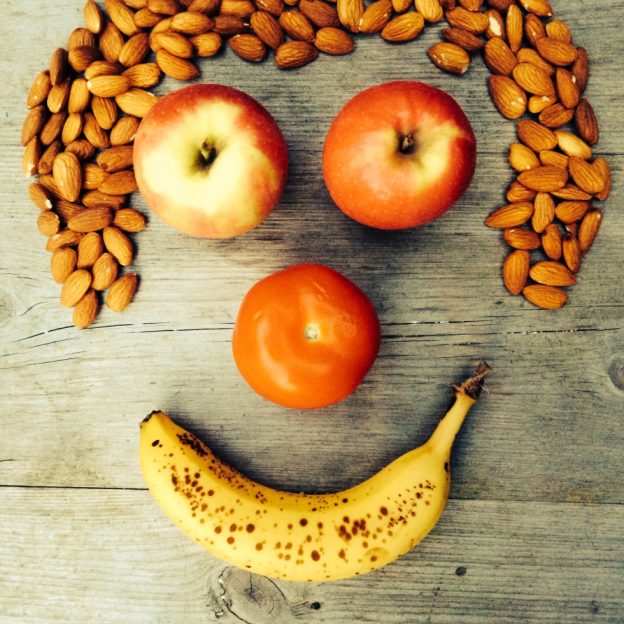You have probably heard the phrase: ‘emotional eating’. This is when a person who feels sad or depressed uses food to console them, as a way to fill the hole that is empty within them.
During this bout of sadness, a person may consume items known as ‘comfort foods,’ – which usually consists of foods high in fat and sugar. Although, ‘emotional eating’ is not the only time people eat these noxious foods, it is simply one of many ways that often lead to individuals becoming overweight or obese.
The highest proportion of overweight and obese people – 13 percent of the global total – live in the United States. According to the Institute for Health Metrics and Evaluation, an estimated 160 million Americans are either obese, or overweight. Nearly three-quarters of American men – and more than 60 percent of women – are obese or overweight.
Besides expanding their waistline, can consuming certain foods also affect a person’s mood? And their happiness?
You know that if you eat a sweet snack, such as a candy bar or a sugary donut, you’ll get a spike of energy – soon followed by a crashing low. Sugar highs and lows are just one of the many ways food can affect how you feel.
“The link between emotions and eating is no myth,” says Sherry L. Pagoto, PhD, associate professor of preventive and behavioral medicine at University of Massachusetts Medical School in Worcester. “People do eat to feel better, so the link is there.”
But have you ever considered which eating habits and specific foods might help you to feel happier and more energized?
Recent research helps illuminate the role that food plays in influencing your mood.
HOW FOOD AFFECTS MOOD
Long-term exposure to an unhealthy diet is a risk factor for depression. According to Everydayhealth.com, a 2014 study looked at the diet and eating habits of 3,663 people. What constituted an unhealthy diet – for purposes of the study – was one that was high in sugar and processed foods.

“One of the symptoms used to diagnose depression is change in appetite, so there certainly could be a link between diet and depression,” says Anil Malhotra, MD, director of psychiatric research at Zucker Hillside Hospital in Glen Oaks, N.Y.
Research also hints at a link between sugar and addictive eating. For instance, a 2012 study published in the International Journal of Eating Disorders found that – of 81 obese people seeking treatment for binge eating – 57 percent met the criteria for food addiction. Foods that people were addicted to were high in fat and sugar.
“Not surprising,” says Pagoto. “When people crave foods, they don’t reach for carrot sticks. Sweets and fats trigger the same pleasure centers in the brain that addictive drugs do.”
NUTRITION STRATEGIES FOR MOOD MAINTENANCE
According to Healthline.com, there’s more to mood maintenance than eating the right foods. The framework for good mood hygiene begins with implementing some basic nutrition strategies:
EAT OFTEN ENOUGH
According to research published by the University of Illinois Extension, eating regular meals and snacks at the same time every day helps keep your blood levels steady. Eating at regular intervals helps to ensure that your body has a continuous source of fuel, and this may assist in keeping your mood stable.
If your blood sugar drops, you might feel tired, irritable and depressed. Eating regularly and choosing foods that release energy slowly will help to keep your sugar levels steady.
Slow-release energy foods include: pasta, rice, oats, wholegrain bread and cereals, nuts and seeds.
Quick tips for maintaining blood sugar levels:
- Eat breakfast every morning.
- Instead of eating a large lunch and dinner, try eating smaller portions spaced out more regularly throughout the day.
- Avoid foods that make your blood sugar rise and fall rapidly, such as sweets, biscuits, sugary drinks and alcohol.
STAY HYDRATED
If you do not drink enough fluids throughout the day, you may find it difficult to concentrate or think clearly. Dehydration may also cause headaches or migraines, and could cause constipation as well – which puts no one in a good mood.
Quick tips for staying hydrated:
- It’s recommended that you drink between 6 to 8 – 8-ounce glasses – of fluid a day.
- Water is a cheap and healthy option.
- Tea, coffee, juices and smoothies all count towards your intake. But be cautious, because these beverages may also contain caffeine or sugar.
DON’T BANISH CARBS – JUST CHOOSE ‘SMART’ ONES
According to WebMD, the connection between carbohydrates and mood is all about tryptophan – a nonessential amino acid. By allowing more tryptophan to enter the brain, more serotonin is synthesized in the brain, and a person’s mood will tend to improve. Serotonin – known as a mood regulator – is made naturally in the brain from tryptophan with some help from B vitamins.
Here’s the catch: While tryptophan is found in almost all protein-rich foods, other amino acids are better at passing from the bloodstream to the brain. So, you can actually boost your tryptophan levels by eating more carbohydrates; they seem to help eliminate the competition for tryptophan, so more of it can enter the brain.
However, it’s important to make smart carbohydrate choices like whole grains, fruits, vegetables and legumes.
CONCLUSION
So, to sum things up: foods have an immense impact on both your body and your brain, and eating the right foods will not only help you lose weight, but they can also determine your state of mind.







